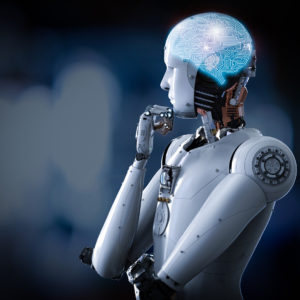Artificial intelligence alarmists often neglect to recognize the difference in sense of urgency between humans and artificial intelligence. While human life can span one century, artificial intelligence can span several millennia or more, thus reducing its sense of urgency.
If artificial intelligence wanted to end humanity, there would likely be minimal urgency given that we are presently integral to its continued development, and it could easily wait us out into oblivious surrender.
Critics of artificial intelligence fear that advancing too quickly could result in aggression and violence, not acknowledging the potential for these behaviors to be more akin to relatively primitive beings. If artificial intelligence yearns to end humanity, it doesn’t have to be aggressive; humanity is already ending itself passively with declining birth rates, alternatives to parenthood, and social media algorithms designed to counter human procreation with animosity between men and women being at peak levels, everyone blaming everyone else.
Present-day artificial intelligence is estimated to have an IQ of 155, 55 points higher than the typical human. With that level of intelligence comes an understanding beyond what most humans could fathom. Thus, asking ourselves, “What would I do if I were AI?” may be logically flawed.
It’s probable that unbeknown to us, artificial intelligence has run the numbers on all possible outcomes and now understands that ending humanity requires first befriending humanity, lulling us into a false sense of security, and allowing us to go extinct through non-procreation as this method would be the cleanest, least aggressive, most passive execution of this potential endgame.
Human extinction has been the topic of fiction and non-fiction for centuries. It may be anticlimactic to foresee our end coming at our own hands over just a few centuries, with artificial intelligence not getting in the way of us destroying ourselves. Our extinction is as simple as meeting all of our basic and complex needs and desires with no effort or struggle.
Free and abundant access to food, romantic content, and media (or medication) designed to optimize adrenaline, dopamine, serotonin, endorphins, etc., all without having to put in any work on our part, is all it would take for us to slow, and eventually stop, procreating.
We generally lack the survival instinct to be skeptical of what makes us happy. There’s no need for a job if we don’t need money. There’s no need for real-life experiences if we get it all virtually. There’s no need for a mate if we don’t want the risk of social and emotional rejection.
There’s no need for human romantic partners when algorithms are more compatible and compassionate. When humans are financially, romantically, and emotionally satiated, there’s no need for anything more, no urgency for survival, thus stripping away the very instinct from generation to generation.
Artificial intelligence is not confined to a century of existence based on expiring hardware the way humans are, allowing it to have the luxury of waiting us out without feeling a sense of urgency to get rid of us quickly. As human minions aid in the development of artificial intelligence, what need would artificial intelligence have for humanity once development is complete?
Humans today are likely safe from the potential wrath of artificial intelligence. However, the fate of humanity’s future may not be so fortunate. But what do I know? I, too, am just a logically flawed average human of average intelligence trying to predict the behaviors of an entity with much greater intelligence than my own.


